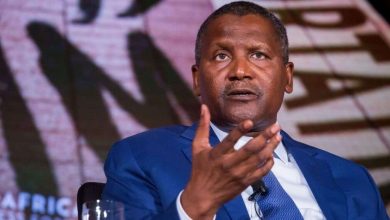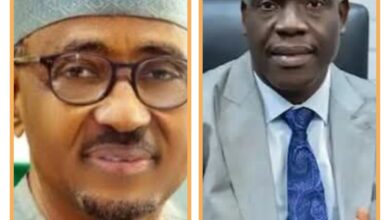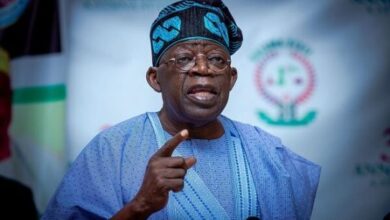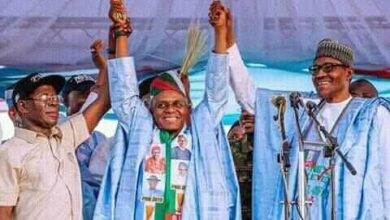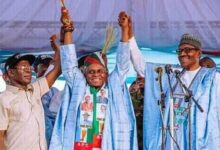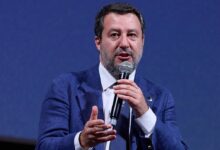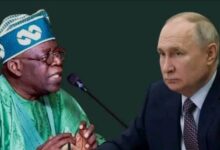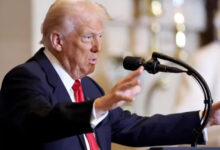IPMAN, NNPC finally return to Dangote Refinery, strike direct sales deal after criticisms by Diala, others
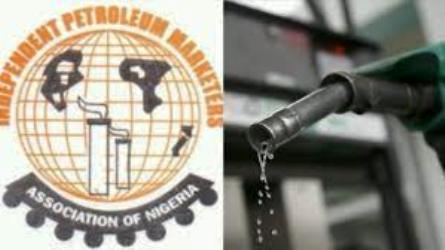
By BASHIR ADEFAKA
Forty-eight hours after The DEFENDER’s report of criticisms by especially Nigerian public affairs analyst, Dr. Uche Diala, of the Nigerian government and their collaborators in choosing fuel imports from foreign countries against lifting Premium Motor Spirit (PMS) from refinery privately built by fellow citizen (Alhaji Aliko Dangote), the Independent Petroleum Marketers Association of Nigeria (IPMAN) and the government-owned Nigerian National Petroleum Corporation Limited (NNPCL) are now singing a new song.

While IPMAN, which had earlier opted for import only awaiting the Central Bank of Nigeria (CBN) to approve it’s access to foreign exchange, has now announced a direct fuel sales partnership with Dangote Refinery expecting to drive down petrol prices across the country, the NNPCL Group Chief Executive Officer, Mele Kyari, said Nigeria cannot have a Dangote Refinery and the country would be importing fuel.
The IPMAN/Dangote agreement, confirmed by IPMAN National Secretary James Tor, could make petrol more affordable and accessible for millions of Nigerians.
In an interview with an online media (not The DEFENDER), Tor highlighted the agreement’s potential to reduce petrol prices at IPMAN member outlets, projecting a price below N1,150 per litre.
“If the business agreement kicks off, you will see a drastic reduction in the price of gasoline,” he stated.
Tor emphasised the advantage this partnership gives IPMAN, whose members operate an extensive network of filling stations across Nigeria, ensuring widespread access to cheaper fuel.
The direct sales arrangement follows IPMAN President Abubakar Maigandi’s announcement that Dangote Refinery, Africa’s largest oil refining facility, has agreed to bypass intermediaries, including the Nigerian National Petroleum Company Limited (NNPCL).
Under the deal, IPMAN marketers will lift Dangote-produced Premium Motor Spirit (PMS) directly, circumventing the costs typically added by middlemen.
“This agreement eliminates the need for imported fuel, providing a reliable source from Dangote,” Tor added.
Direct sales are also expected to ease the distribution of petrol, improving availability and stabilising the market. In recent months, the landing cost of petrol has fluctuated, with prices reaching as high as N1,200 per litre in some areas, spiking inflation and straining consumers’ finances.
Anthony Chiejina, Dangote’s Group Brand and Communication Director, confirmed the agreement, noting that it could ease ongoing price tensions.
The refinery, which began operations in September, currently offers petrol at N960 per litre for bulk sales to ships and N990 per litre to trucks. However, the exact pricing terms for IPMAN’s direct purchases are still being finalised.
This agreement comes amid broader government reforms aimed at diversifying the petrol distribution process.
Under a recent policy shift, the NNPCL no longer holds exclusive rights to distribute Dangote fuel, following a Naira-for-crude initiative championed by the Ministry of Finance. The decision aligns with a government-led effort to stabilise energy prices and reduce inflationary pressures, which reached 32.70 percent in September.
With the direct fuel sales agreement, IPMAN hopes to stabilise and relieve Nigeria’s fuel market, where prices have doubled in the past two months.
As negotiations between IPMAN and Dangote continue, the outcome will determine if Nigerians can finally expect the long-awaited fuel price relief.
Pricing that Nigerians would accept would be nothing higher than where Bola Tinubu government met it, that is N185, which is said can be achievable only if the government returns to fuel subsidy regime as it is now clear that even the United States of America, whose interest the International Monetary Fund (IMF) and Workd Bank represent, like many other developed countries still pays subsidy not only on fuel but also food.
Dr. Uche Diala, a Nigerian public affairs analyst, had described the anti-development attitude of Nigerian system and people, which they displayed towards the one and only privately owned petroleum refinery ever in Africa’s most populous country, Dangote Refinery, as one of “a self defeatist people who cut our nose to spite our nose”.
He was reacting to a report earlier published by The DEFENDER headlined “Twist of fate as Dangote’s petrol, denied at home, in high demand internationally” with a rider showing that South Africa and seven other countries are now set to lift fuel from the Dangote Refinery in Lagos.
According to Dr. Dialla, “Nations far and near are planning to come over to our backyard to buy and lift petrol produced by our kinsman, while our collectively owned NNPCL and our kinsmen petroleum marketers are hustling for import licenses from our jointly owned NMDPRA to import the same petrol, possibly of lesser quality, from abroad.
“Talk about the proverbial wise man who dies behind a foolish man’s house,” he lashed at them.
Diala, who wrote in a reaction posted on his verified Facebook social media timeline in Saturday, said, “Recently, the Chairman of the National Petroleum Authority of Ghana, Mustapha Abdul-Hamid, said the arrangement with Dangote refinery would end his country’s monthly $400m fuel imports from Europe.”
“Now I ask …,” he continued:
“So, those countries, including Ghana, coming to buy PMS in Nigeria from Dangote Refinery do not know the road to where our own NNPCL and marketers buy “cheaper” PMS abroad?
“I continue to say that we are not serious as a nation (from the government to the citizens in the large part), and that is not an insult. It’s a fact.
“Well, Aliko Dangote and his Refinery have nothing to lose. They will be cashing out and in dollars, which is even sweeter.
“It is our nation and us all who have everything to lose. Until the day we recall common sense reasoning from wherever we banished it to.
“Good luck to us.
“Congratulations to Dangote,” Uche Diala had said sounding proudly Nigerian only for the criticised turn a new leaf 48 hours after. Nigerians are, however, asking “prices to crash to how much?”


